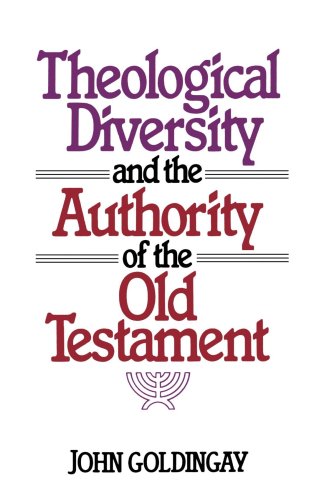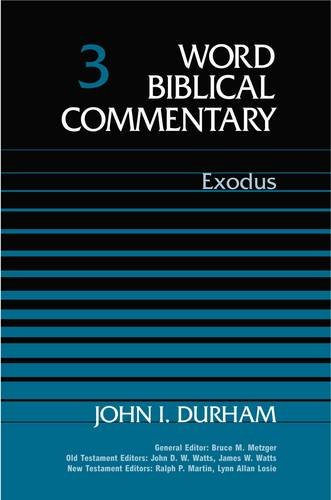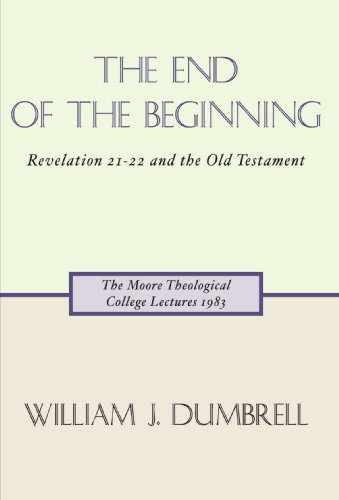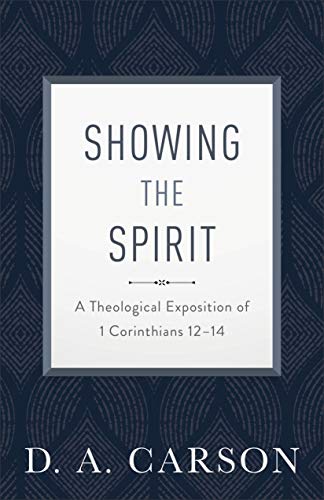Volume 15 - Issue 2
AIDS, judgment and blessing
By John WhiteSummary
The question of AIDS and divine judgment leads us to a consideration of the nature and the principles of both. AIDS is not judgment primarily against the gay community, but to the community as a whole. Judgment comes to those who refuse to acknowledge God as what and who he is. It may take many forms. In its early stages there is a loss of understanding, with abandonment to the folly of idolatry, and exposure to sexual promiscuity (and the physical effects of promiscuity). But God intends his judgments on his people to be a prelude to blessing, as his people repent.
Many Christians feel that AIDS represents God’s judgment on the homosexual community. How do I as a self-confessed conservative view the question: Is God especially mad at gays?
We still have only limited knowledge about the disease and its origins. At first we thought AIDS originated in a gay and drug-using community in Haiti, and that it was a disease of gays. Further research makes it seem more likely that the disease began in one of the countries in tropical Africa, where it exists among simians. Some authorities believe that it could have spread to humans by a species of anopheles mosquito. In several African countries, where the disease is widespread and deadly, heterosexual promiscuity spreads it. If AIDS represents divine judgment, it is unlikely to be primarily judgment against homosexuals.
Let us turn, then, to the examples of God’s judgment in the Bible. What can we learn from them that will help us to have a balanced view of AIDS and homosexuality?
God’s judgments in the OT
In OT times God executed judgment by sending plague, natural catastrophes, war, captivity and death. He took no delight in doing so, showing himself to be patient, long suffering, plenteous in mercy. The horrific nature of the judgments reflected the gravity of sin. Always God’s aim was to purge and to purify the people through whom he planned to carry out his saving purposes.
We might begin by considering the famous incident described in Numbers 16—the rebellion of the sons of Korah. Backed by a dissatisfied group of leading Levites, Korah (Nu. 16:1–10), along with a couple of non-Levites, Dathan and Abihu, protested against the leadership of Aaron and Moses. They aimed at supplanting the Aaronic priestly succession (16:10–11).
To understand the incident we must also grasp that the real leadership was divine. God led the people either by the pillar of fire and cloud, or else by communicating his wishes via Moses. Thus the rebellion against Moses and Aaron was really rebellion against God. The people’s real sin was that of failure to honour God’s leadership and person.
In the face of the rebellion Moses proposes that the rebels offer incense to God (a priestly function). This will test whether their ambition to be priests meets with divine approval (16:4–7). Stung by the insulting refusal of Dathan and Abiram to appear before him, Moses also cries out to God, and receives special instructions as to what he should do (16:23–30). There follows a horrendous incident, and one that sickens and appalls us. Not grasping that earthly existence is of less importance than life to come, or that the sanctity of the nation is at stake, we experience dismay as we read on (16:31–35). But there is more to follow.
The people have grasped neither the significance nor the seriousness of what has happened. They presume that the tragedy represents a display of wizardry by Moses rather than divine displeasure. So they rise up against him, and by a further stroke of God’s judgment nearly 15,000 people lose their lives. Only the desperate intercession of Moses and Aaron stays God’s hand.
The first thought that strikes us concerns the extreme severity of the sentence. Can this be the God we worship? Would he do similar things today? Certainly, there are other similar incidents in the OT. They begin with the account of the flood, continue with God’s instructions to Joshua about the devoted nations occupying Canaan (Jos. 6 and 7), and go on to such instances as his judgment upon Israel following David’s conceited head count of his people. Whatever we say about the severity, we must notice two points. God judges all nations, including his special people. Also, throughout Scripture, a longsuffering God waits a long time before imposing judgment.
But we must ask what principles arise from the Korah incident. I would suggest there are:
- Principles that never change. The Korah episode exemplifies principles seen in previous judgments, and these reappear in the NT.
- The basic cause of judgment is the failure to recognize God and to respond with trustful thanksgiving.
- God’s judgment comes against individuals, families or nations.
- The rebellion by a group of leaders may reflect widespread attitudes in the whole people.
- Judgment against an individual or a small group may have the purpose of teaching an important lesson to and thus warning a much larger group.
Let me go over each point.
God is the judge of all mankind. He judges more severely those that have more light. His judgments on Israel were correspondingly painful and severe. The church will not be immune (1 Cor. 11:27–32; Rev. 2:16, 20–23; 3:19).
The principles by which judgment comes to us do not change. It is true that under the new covenant we escape final judgment. However, we do so only because Christ took that judgment on our behalf. We are still liable to earthly judgments of plague and premature death. Ananias and Sapphira met death as their sentence for deceit. Paul warns the sinning Christians in Corinth that God is already visiting them with sickness and ‘sleep’.
The second principle (that the real offence is to fail to recognize and honour God) is consistent throughout Scripture. God’s judgment of Moses when he struck (instead of speaking to) the rock is an example of this. God judged Moses ‘because [he] did not trust in me enough to honour me as holy in the sight of the Israelites …’ (Nu. 20:11–12). Similarly, judgment in Romans 1 came on people who knew about God, yet ‘neither glorified him as God nor gave thanks to him’ (Rom. 1:21). In each case failure to honour and glorify God himself brings the judgment. In Moses’ case, he alone suffered. In other cases families and nations suffer.
The third and fourth principles are linked together. The rebellion of the 250 reflected very widespread failure to recognize who God was, and what his real significance to Israel was.
The fifth principle is clear both in the OT and the NT. Terror fills people when judgment falls. The result of God’s judgment on Ananias and Sapphira was that ‘great fear seized the whole church’ (Acts 5:1–11). Sometimes it takes terror to bring true repentance, though God prefers to do it by revealing his kindness (Rom. 2:4).
NT teaching about judgment
The most enlightening teaching about judgment brings us directly to the question of AIDS. Paul in Romans 1 explains how and why judgment comes upon us all. Up to now we have thought of judgment in the form of earthquake, war, famine, plague, etc. Paul’s explanation of the phenomenon digs a little deeper. He shows that judgment may start long before the final strokes appear. Let me try to express the gist of Romans 1:18–32.
In our pride we human beings refused to respond to our innate capacity to know God (to see him in creation). Because of this sin, judgment came upon us. It came as what some theologians refer to as judicial blindness. You cannot think properly unless the one true God is central to your thinking. You cannot think straight unless the one true God has mastered you. Therefore our thinking became futile. We grew stupid, obtuse. Brilliant in academic performance perhaps, we were quite unable to see what was right under our noses. This is how God’s judgment begins.
A second stage of the judgment followed. We lost what discernment we had (Rom. 1:21–23) and became idolaters. A third stage Followed rapidly. We were (to use the niv translation) ‘given over’—given over to sexual impurity (1:24), to shameful lusts (1:26), and to a depraved mind (1:28). Notice that vulnerability to sexual sin is here part of the judgment. God gave us over, gave us over to ‘sexual impurity for the degrading of [our] bodies’! To put it another way, God removed his protection against sexual perversion. He removed it because we refused to acknowledge him as God. He allowed us in our pride to stumble blindly along an idolatrous road of sin until we lost ourselves in a maze of sexual allurements.
AIDS is not a judgment of God against homosexuals. It is a judgment of God against society—a society God has allowed to reap a whirlwind. The result is the sexual insanity into which our pride has led us. And it is the sexual insanity that is the real judgment. AIDS is merely the result, the final working-out of the judgment.
Sexual depravity in the church
I use the pronouns ‘we’ and ‘us’ advisedly. It is plain that the church is in this case part of society. I believe that Christians by our materialistic outlook on life have become intellectual theists but behavioural humanists and materialists. We profess Christian theism, but rely on everything the world relies on. The judgment has also fallen upon us. One Christian leader after another falls into sexual sin which also sweeps the rank and file of the church. As a psychiatrist who sees many Christians, I know that the extent of sexual hanky-panky in the church is now comparable with what goes on in the world.
The research department of Christianity Today recently conducted two surveys among their readers. One concerned pastors’ sexual habits and the other, the sexual failures of lay readers of the magazine. The research department mailed out nearly two thousand questionnaires, divided equally between the two groups. The results confirm what some of us already knew.
12% of the pastors responding to the Christianity Today survey admitted sexual intercourse in the course of their pastoral work. 18% admitted to passionate kissing, fondling, mutual masturbation, etc. Such pastors regret and are troubled to make their admissions, but commonly have nowhere to turn for help and counsel.
The Christianity Today statistics indicate that sexual failure in the pew is yet more troubling than that in the pulpit. The report continues, ‘Incidences of immorality [among the laity] were nearly double: 45% indicated having done something sexually inappropriate, 23% said they had had extramarital intercourse, and 28% said they had engaged in other forms of extramarital sexual conduct.’1
Frangipane, a US charismatic leader, comments, ‘There are respectable men who love God and seek to serve him, yet secretly in their hearts they are prisoners of Jezebel. Even now they are deeply ashamed of their bondage to pornography; and they can barely control their desires for women. Ask them to pray and their spirits are awash with guilt and shame. Their prayers are but the whimpers of Jezebel’s eunuchs.’2
It now grows clearer that ‘hard core porn’ is the major factor in recent increases in rape, sexual cruelty and murder. Unhappily, we begin to see the terrible end-products of depravity, as Paul lists them in Romans 1, both in contemporary society and in church members.
Unhappily, Christian sexual failures do not confine themselves to heterosexual activity. Homosexual practices (overt and in secret, to say nothing of the struggle against homosexual impulses) are widespread.
Statistics in countries other than the US may differ, but I question whether they differ much. Pastors all over the world report grave concern about the extent of promiscuity among Christians. But please note: the current weakness of Christians in the face of the world’s impurity is itself an expression of God’s judgment. God has ‘given us over’ to sexual vulnerability. Far from excusing our sexual lapses, this should only draw our attention to our deeper sin, the sin of not honouring him as God in the way we conduct our lives.
Judgment in the form of plague
Last week I met a sweet Christian woman whose husband (also a Christian) died recently from AIDS. He had abandoned the gay lifestyle as soon as he was converted. His widow may now be a carrier of the disease. In this we see yet another biblical principle of divine judgment: that God’s people may share in the judgment that comes on the guilty, even though they themselves may be innocent. Even when we do not participate in the church’s sins, we may share in their consequences. Joshua and Caleb had to suffer forty years of wilderness journeys in spite of their personal righteousness.
Such a case is puzzling. Up to the time when he discovered he had the disease, the husband’s story had been one of triumph. Deeply repentant for his past, he had sought God’s mercy, had experienced forgiveness and even an unusual degree of deliverance from his homosexual orientation. Fellow Christians hailed their marriage as a triumph of grace. Even after the dismay of the diagnosis, the young couple had continued to serve God with joy, making no complaint against him. Perhaps we can understand why his past should catch up with the husband, but why the threat to the wife’s life? Tragically, our past as well as our present can bring catastrophe to others. God nowhere promises his followers immunity from ‘unjust’ suffering.
AIDS is a physical sickness, one that some authorities predict will eventually compare with the bubonic plague of the fourteenth century. How should we view sickness of any kind? Clearly it does not always represent God’s judgment on the sick person, or even on the society of which the sufferer forms a part. Or does it? How does Scripture see it?
Scripture does not mention sickness before the fall. Presumably sickness reflects something similar to the thorns and thistles God cursed the ground with at the fall. Several physical and emotional ills can, even in the account, be seen as a result both of the fall, and of the divine curse that accompanied it. Mortality itself arose from it (Gn. 2:17), as did the shame and fear of nakedness. The pain of child-bearing was specifically mentioned as the way the curse would affect women (Gn. 3:16), while for men physical stress and toil were to characterize their work (Gn. 3:17–19). There can be little doubt that all sickness, physical or mental, came with the fall.
It came because Satan became the ruler of this world. Having believed his lie, human lives came under the power both of the lie itself, and of the lie’s father. John records three occasions when Jesus referred to Satan as ‘the prince [ruler] of this world’ (Jn. 12:31; 14:30; 16:11). Satan thus becomes the agent of divine judgment, a fact that is not always easy to come to terms with. We are vulnerable to sickness because of his rule. Sometimes Satan is mentioned as the source of a problem. It is by no means clear what the nature of Paul’s ‘thorn in the flesh’ was, but whatever it was it constituted ‘a messenger of Satan’. It was a messenger of Satan sent to do God’s work in Paul. So do we accept Satan’s messengers or oppose them?
When we grasp that Satan is an instrument of God’s judgment it becomes a little easier to understand why we should always oppose sickness, whether with medicine, or with prayer, or with both. To accept judgment meekly is not necessarily a sign of godliness. Faced with a plague for sin, at Moses’ bidding Aaron ran with his censer into the midst of his plague-inflicted compatriots to ‘make atonement’ for them. ‘He stood between the living and the dead, and the plague stopped’ (Nu. 16:47–48). When Phineas took violent action against a sinning Israelite, another plague was stopped (Nu. 25:7–13). Judgments, even when they are already in progress, are open to appeal. God takes no pleasure in executing them. When David built an altar on Araunah’s threshing floor, ‘the Lord answered prayer in behalf of the land, and the plague on Israel was stopped’ (2 Sa. 24:25).
We must never be passive in the face of divine judgment. Jesus came to ‘destroy the devil’s work’ (1 Jn. 3:8). By his incarnation, death and resurrection, he manifested his kingdom and rule on earth, his authority to advance against the ruler who has been the pawn of the Father’s judgment. By healing the sick and casting out demons, he showed both the nature of the kingdom and his own authority in it.
Blessing: the reverse side of judgment
I believe that God’s judgment on the church throughout the world is only just beginning. There will be many more exposures of Christian wrongdoing, along with many false accusations. We will be mocked and ridiculed, not by way of sharing Christ’s sufferings, but because we have not honoured God as God. Our trials in this case will represent his judgment.
When God judges his people, he does so because without a thoroughgoing repentance he is unable to bless them. Blessing is always his final goal. However, repentance is more than a lighthearted decision to adopt another viewpoint. It does indeed involve a change of viewpoint, but as the Hebrew word nachamreminds us, there is ideally a profound change of mood. Frustration over my struggle with sin gives place to something more profound. I need contrition in true repentance. I experience grief, grief that is not merely dismay over my plight. I weep as I become aware how much I have grieved my Lord. It may lie within my power to change my opinion about something, but to weep with a tender heart over my Lord’s wounds is a gift only the Holy Spirit can give me.
Therefore when God judges his people, he does so because he sees it as the only way to restored blessing. The only church that can be blessed is a purged and repentant church. Only a purged and repentant church will be an instrument for a worldwide awakening.
AIDS is one of the end-results of the evolution of God’s judgment upon society, as well as upon God’s people. Yet far from losing heart about it, we do well to lift up our heads. God is not abandoning either his people or a lost society. Rather he is moving in judgment, that he might teach us repentance, and then that he might bless us.
Let us then recognize the situation for what it is. Let us cry out to God for contrite hearts. Let us deal with those areas in our lives that God is trying to reach. It may be that as we do so God will move everywhere with the greatest awakening that this world has ever seen.
1 ‘How Common is Pastoral Indiscretion?’, Leadership, Volume IX, Number 1, p. 12.
2 Francis Frangipane, The Three Battlegrounds (Marion Iowa: Frangipane, 1989), p. 100.
John White
Dr John White, well known as a psychiatrist and author of many books on practical and personal Christian living, makes a penetrating analysis of a delicate and controversial issue.






